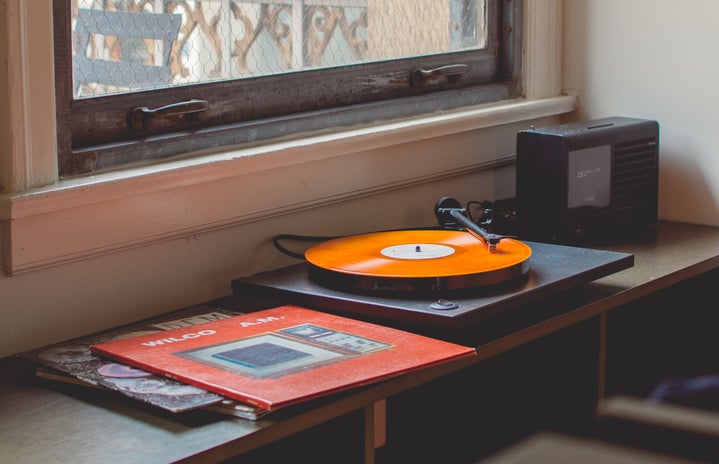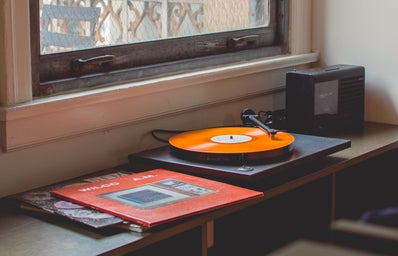The way to my heart is someone making me a playlist.
Someone curating a list of songs that they feel represent me, and reminds them of me; picking out melodies and lyrics that they think I would like. The thought of someone hearing a song and thinking of me feels very sweet. A person’s favorite songs offer a deeper look into their soul, and sharing music is this kind of intimacy that I think is hard to replicate. It is like kisses and the deepest kind of embrace.
Music in itself is a love language, and playlists the modern day love letter – not only to others but to ourselves.
High Fidelity’s Rob Brooks said it best: “You get to say what you want to say without actually saying it. You get to use someone else’s poetry to express how you feel” (Crave, 2020).
Songs perfectly articulate the sentiments that words cannot. Putting together playlists that represent certain feelings, emotions and memories is a kind of healing; a way to cope with the past, a nod to the present, and a way to manifest the future. Certain songs, artists and albums represent certain moments in our lives, and often certain people.
Good News by Mac Miller will forever feel like a cold winter’s day in January, getting hot chocolate with my best friend from the café down the road. Corduroy Dreams by Rex Orange County will always remind me of my confused fifteen year old self, lying on my bedroom floor, daydreaming about the future. This Feeling by Alabama Shakes is a reminder of moving away from home for the very first time. As it Was by Harry Styles will forever remind me of late night drives and dancing in the kitchen with the boy I love.
“As the late physician Oliver Sacks has noted, musical emotions and musical memory can survive long after other forms of memory have disappeared. Part of the reason for the durable power of music appears to be that listening to music engages many parts of the brain, triggering connections and creating associations” (Heshmat, 2019).
It is an idiosyncratic experience, having a song pull you back into a moment in time, making you feel everything all over again. My parents would often talk about where they remember hearing a certain song for the first time – my mom would tell us stories about driving home from university to certain songs, and my dad would always say that listening to Bruce Springsteen brings him back into his teenage bedroom.
My dad has always loved “real music” as he puts it. Childhood car rides filled with Depeche Mode where my dad would place his hands over the car speakers and talk about how incredible the vibrations of the bass feel. Random dinner performances to Duran Duran, and afternoon trivia about The Smashing Pumpkins and Led Zeppelin.
I have been lucky as my parents exposed my brother and I to a wide range of music ever since I was little, and throughout my life I have met people who have introduced me to artists and songs that I feel have shaped me into who I am today. My best friends have introduced me to some incredible artists that I now claim as my favorites, and share them with other people.
Music has always been a topic of conversation among my friends and I: discussing favorite movie soundtracks, selecting which songs make up the musical narrative of our lives, extremely specific playlist name ideas, and the songs that define certain decades.
The beautiful thing is that music and sound are constantly evolving, just as we are, so there will always be a new feeling to be uncovered, and new lyrics for us to identify with. And in turn, there will always be those songs that bring us back into the past; into an old version of ourselves, grounding us and reminding us of a simpler time.
“Researchers found that performing music in a group was even better. Singing, drumming, and dancing all resulted in more ‘happy hormones’ in people’s brains” (Singleton, 2021).
Music releases endorphins and dopamine – a natural high. It can’t help but make us feel good. It is perfectly defined by that feeling you have when you leave a concert. Stepping out and feeling like your life has changed, blanketed by clarity. That post concert euphoria is a feeling that cannot be replicated.
Music turns the mundane into movie moments, transforming a daily habit into an experience. It pulls us out of our lows, and can completely and utterly express our pain when we cannot. Music is always there for us, connecting us with others or exploring our very essence. It is a universal love language, one that can bring us together or be experienced completely alone. Something that can be shared by lovers, family, and friends.
And making a playlist for someone is like writing a love letter; thoughtful, heartfelt, and meticulous. It is truly a form of emotional and intellectual intimacy, a special kind of love that I hope each and every one of us gets to experience.
References
Heshmat, S. (2019, August 25). Music, emotion, and well-being. Psychology Today. Retrieved February 11, 2022, from https://www.psychologytoday.com/us/blog/science-choice/201908/music-emotion-and-well-being
Crave TV (2020). High Fidelity . Crave.ca. Retrieved February 12, 2022, from https://www.crave.ca/en/tv-shows/high-fidelity/me-time-s1e2
Singleton, H. C. (2021, March 19). How music connects us to each other. Right for Education. Retrieved February 11, 2022, from https://rightforeducation.org/2021/03/19/how-music-connects-us-to-each-other/


